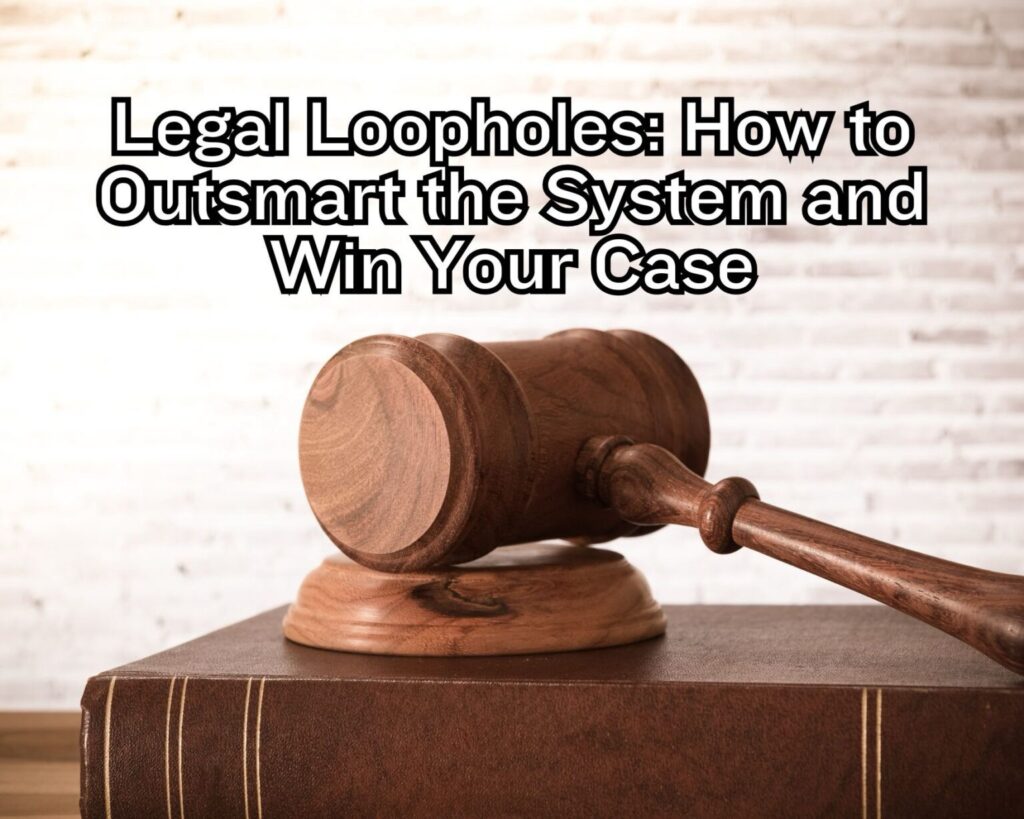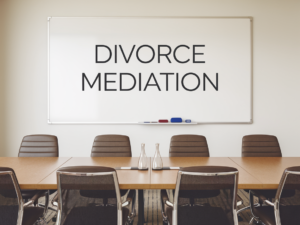Understanding what criminal charges disqualify you from Section 8 is crucial for those seeking housing assistance. This guide explores the specific charges that can affect your eligibility, providing a clear overview of the Section 8 application process and the impact of a criminal background. Make informed decisions and navigate the complexities of housing assistance with confidence.

Navigating the complexities of Section 8 housing assistance can be challenging, especially when considering how criminal charges might impact your eligibility. Section 8, formally known as the Housing Choice Voucher Program, aims to help low-income families, the elderly, and the disabled afford decent, safe, and sanitary housing. However, eligibility for this program includes a stringent review of an applicant’s criminal background. Understanding what criminal charges disqualify you from Section 8 is crucial to ensure you meet the criteria and can plan your housing needs accordingly. In this article, we will delve into the specifics of which criminal charges can disqualify you from receiving Section 8 assistance and offer insights into related eligibility criteria.

Understanding Section 8 Housing Assistance
The Section 8 Housing Choice Voucher Program, administered by the U.S. Department of Housing and Urban Development (HUD), provides rental assistance to low-income families, seniors, and individuals with disabilities. This program helps participants afford safe and sanitary housing in the private market, offering flexibility and choice in where they live.
To qualify for Section 8, applicants must meet specific income requirements based on the median income for their area. Additionally, they must be U.S. citizens or eligible immigrants and pass a rigorous background check. The aim is to ensure that assistance is granted to those who are genuinely in need and can maintain the standards of their rental agreements. Understanding these basic requirements is essential before delving into how criminal charges might affect eligibility.

Criminal Background Checks for Section 8
When applying for Section 8 housing assistance, one of the critical steps in the process is undergoing a criminal background check. Housing authorities conduct these checks to assess the eligibility and suitability of applicants. The background check is designed to identify any criminal history that might disqualify an individual from receiving assistance.
During the criminal background check, housing authorities review various aspects of an applicant’s criminal record, including past arrests, convictions, and any ongoing criminal proceedings. The primary focus is on ensuring the safety and well-being of the community. Certain criminal activities, especially those related to violent or drug-related offenses, can result in disqualification from the program.
Understanding your rights during these checks is vital. For more information on how to handle interactions with law enforcement and protect your rights, you can refer to this guide on Know Your Rights When Stopped by the Police. Being informed and prepared can make a significant difference in navigating the application process smoothly.

Felony Convictions and Section 8 Eligibility
Felony convictions can have a significant impact on your eligibility for Section 8 housing assistance. Housing authorities are particularly strict when it comes to certain types of felony convictions due to the potential risk they pose to the safety and stability of the community.
Types of felony convictions that typically result in disqualification include:
- Drug-related offenses: Convictions involving the manufacture or distribution of controlled substances.
- Violent crimes: Felonies such as murder, rape, assault, and other violent acts.
- Sex offenses: Crimes that require registration as a sex offender.
- Fraud or financial crimes: Felonies involving fraud, embezzlement, or other significant financial misconduct.
It’s important to note that not all felonies automatically disqualify an applicant. The specific details of the conviction, such as the nature of the crime, the time elapsed since the conviction, and evidence of rehabilitation, are taken into account.
If you have a felony conviction and are unsure how it affects your Section 8 eligibility, consulting a legal professional can be incredibly beneficial. For guidance on finding the right legal representation, refer to this resource on Choosing the Best Attorney for Your Case. Legal expertise can help navigate the complexities and improve your chances of obtaining assistance.
Checking out our guide On the Top DIY Legal Books can really help you further your knowledge!

Drug-Related Offenses and Section 8
Drug-related offenses are a major consideration when it comes to Section 8 eligibility. Housing authorities scrutinize these types of convictions closely due to their potential impact on community safety and well-being.
Types of Drug-Related Offenses That Affect Eligibility
- Manufacture or Distribution: Convictions for producing or selling controlled substances can lead to permanent disqualification from the Section 8 program.
- Possession with Intent to Distribute: Similar to manufacturing or distributing, possessing drugs with the intent to sell can result in disqualification.
- Simple Possession: While less severe than manufacturing or distribution, repeated offenses of drug possession can still impact eligibility, especially if they occurred recently.
Temporary vs. Permanent Disqualification
- Permanent Disqualification: Certain serious drug-related offenses, particularly those involving the manufacture or distribution of controlled substances, can result in permanent exclusion from the program.
- Temporary Disqualification: Less severe drug offenses may lead to a temporary ban. After a specified period, and potentially after demonstrating rehabilitation and compliance with probation or parole conditions, individuals may reapply for Section 8 assistance.
Rehabilitation and Eligibility Restoration
- Evidence of Rehabilitation: Showing proof of rehabilitation, such as completing a drug treatment program, maintaining steady employment, and having a clean record post-conviction, can positively influence your eligibility status.
- Support from Legal Professionals: Navigating the path to restoring eligibility can be complex. Consulting with a legal professional who specializes in housing law can provide clarity and guidance.
Understanding the impact of drug-related offenses on Section 8 eligibility is crucial for applicants with a criminal history. Taking steps towards rehabilitation and seeking legal advice can significantly enhance the chances of qualifying for housing assistance.

Violent Crimes and Section 8 Eligibility
Violent crimes are another category of offenses that can significantly impact eligibility for Section 8 housing assistance. The severity and nature of these crimes pose substantial concerns for housing authorities focused on maintaining a safe living environment for all residents.
Evaluation of Violent Crimes
- Nature of the Crime: Violent crimes such as murder, assault, robbery, and domestic violence are closely scrutinized. The more severe and recent the offense, the higher the likelihood of disqualification.
- Context and Circumstances: Housing authorities consider the context of the crime, including whether it was a single isolated incident or part of a pattern of behavior.
- Time Elapsed: The amount of time since the conviction plays a role. More recent convictions are more likely to result in disqualification compared to those that occurred many years ago.
Impact on Applicants and Current Recipients
- Applicants: Individuals with recent convictions for violent crimes are often disqualified from receiving Section 8 assistance. The disqualification aims to protect the safety and well-being of existing residents.
- Current Recipients: If a current recipient is convicted of a violent crime, they may face termination of their housing assistance. Housing authorities regularly review the criminal activity of current recipients to ensure ongoing compliance with program rules.
Rehabilitation and Eligibility Restoration
- Proof of Rehabilitation: Demonstrating significant steps towards rehabilitation, such as anger management courses, counseling, community service, or maintaining a clean record post-conviction, can improve the chances of requalification.
- Legal Support: Seeking advice from a legal professional experienced in housing and criminal law can be beneficial. They can help present a case for eligibility restoration effectively.
For those with a history of violent crimes, understanding these criteria is essential. Taking proactive measures to demonstrate rehabilitation and seeking appropriate legal guidance can aid in overcoming these challenges and improving the chances of qualifying for Section 8 assistance.

Other Criminal Charges Affecting Section 8 Eligibility
In addition to felony and violent crime convictions, other criminal charges can also affect eligibility for Section 8 housing assistance. Understanding how various offenses are evaluated can help applicants better prepare their applications.
Misdemeanors vs. Felonies
- Misdemeanors: While generally less severe than felonies, certain misdemeanors can still impact eligibility, especially if they are repeated offenses or involve drug use, theft, or fraud. Housing authorities look at the nature and frequency of these misdemeanors.
- Felonies: Felony convictions, as previously discussed, are more likely to result in disqualification. However, not all felonies automatically disqualify an applicant; the specific circumstances and time elapsed since the conviction are considered.
Non-Violent Crimes
- Theft and Fraud: Crimes involving theft, fraud, or other forms of dishonesty can lead to disqualification. This includes identity theft, credit card fraud, and welfare fraud.
- Drug Offenses: Aside from serious drug-related offenses like manufacturing or distribution, other drug-related misdemeanors, such as possession of drug paraphernalia, can also impact eligibility, particularly if they indicate ongoing substance abuse issues.
- Property Crimes: Crimes such as vandalism or trespassing may not automatically disqualify an applicant but can raise concerns about an individual’s respect for property and community standards.
Evaluating Non-Violent Crimes
- Pattern of Behavior: Housing authorities consider whether the criminal activity represents a pattern of behavior or isolated incidents. A pattern of criminal behavior, even with minor offenses, can indicate a higher risk.
- Rehabilitation and Compliance: Evidence of rehabilitation and compliance with legal requirements, such as completing probation or participating in community service, can positively influence the evaluation process.
Understanding how various criminal charges affect Section 8 eligibility is essential for applicants with a criminal history. Those with minor or non-violent offenses should focus on demonstrating rehabilitation and a commitment to maintaining community standards. This approach can significantly enhance the likelihood of obtaining housing assistance.

Application Denial and Appeals Process
If your Section 8 application is denied due to criminal charges, it’s important to understand the steps you can take to appeal the decision. The appeals process provides an opportunity to present additional information and potentially reverse the denial.
Steps to Take If Your Application Is Denied
- Review the Denial Notice: Carefully read the notice of denial to understand the specific reasons for the decision. This document will outline the criminal charges that led to your disqualification.
- Gather Supporting Documentation: Collect evidence that may support your appeal. This could include proof of rehabilitation, letters of recommendation, certificates from completed programs, and any other relevant documents.
- Request a Hearing: Most housing authorities allow applicants to request an informal hearing to appeal the denial. Make sure to request the hearing within the specified time frame mentioned in the denial notice.
Understanding the Appeals Process
- Informal Hearing: During the hearing, you’ll have the opportunity to present your case, provide additional information, and address any concerns raised by the housing authority. Be prepared to explain why you believe the denial was incorrect or why your circumstances have changed.
- Legal Representation: Having legal representation can be advantageous during the appeals process. An experienced attorney can help present your case effectively and ensure that all procedural requirements are met. For more guidance on choosing the right legal representation, refer to Choosing the Best Attorney for Your Case.
- Outcome of the Hearing: After the hearing, the housing authority will review the information presented and make a decision. If the appeal is successful, your application may be reconsidered, and you could become eligible for Section 8 assistance.
Maintaining Eligibility
If your appeal is successful, it’s important to maintain your eligibility by adhering to all program rules and avoiding any further criminal activity. Demonstrating ongoing compliance with legal requirements and community standards will help secure your housing assistance.
Understanding the application denial and appeals process is crucial for those with criminal charges on their record. By taking the right steps and seeking appropriate legal guidance, you can improve your chances of overturning a denial and securing the housing assistance you need.

Frequently Asked Questions About Section 8 and Criminal Charges
Navigating Section 8 eligibility with a criminal record can be complex. Here are some frequently asked questions to provide further clarity:
Can I Apply for Section 8 with a Criminal Record?
Yes, you can apply for Section 8 housing assistance with a criminal record. However, certain criminal charges, particularly those involving violent crimes, drug-related offenses, and significant felonies, can disqualify you from receiving assistance.
Are Misdemeanors Considered in Section 8 Applications?
Yes, misdemeanors are considered during the application process. While less severe than felonies, repeated or serious misdemeanors can impact your eligibility. The nature, frequency, and recency of the misdemeanor offenses are taken into account.
How Long Do Criminal Charges Affect My Eligibility?
The impact of criminal charges on your eligibility depends on the nature of the offense and the time elapsed since the conviction. Serious offenses like violent crimes or major drug-related felonies can result in long-term or permanent disqualification. Lesser offenses may lead to temporary disqualification, with the possibility of reapplying after demonstrating rehabilitation.
What Steps Can I Take to Improve My Chances of Eligibility?
To improve your chances of eligibility:
- Demonstrate Rehabilitation: Participate in rehabilitation programs, complete any court-ordered requirements, and maintain a clean record post-conviction.
- Gather Supporting Documentation: Collect letters of recommendation, certificates from completed programs, and other evidence that shows positive changes and rehabilitation efforts.
- Seek Legal Advice: Consulting with a legal professional experienced in housing law can provide guidance on navigating the application and appeals process. For more information on legal support, refer to Choosing the Best Attorney for Your Case.

Can I Appeal a Section 8 Denial Due to Criminal Charges?
Yes, if your Section 8 application is denied due to criminal charges, you have the right to appeal the decision. Request an informal hearing, present additional evidence, and explain why you believe the denial was incorrect. For more details on the appeals process, review the section on Application Denial and Appeals Process.
Understanding these frequently asked questions can help you better navigate the complexities of Section 8 eligibility with a criminal record. Taking proactive steps towards rehabilitation and seeking appropriate legal advice are key to improving your chances of qualifying for housing assistance.
As an Amazon Associate we earn from qualifying purchases through some links in our articles.




